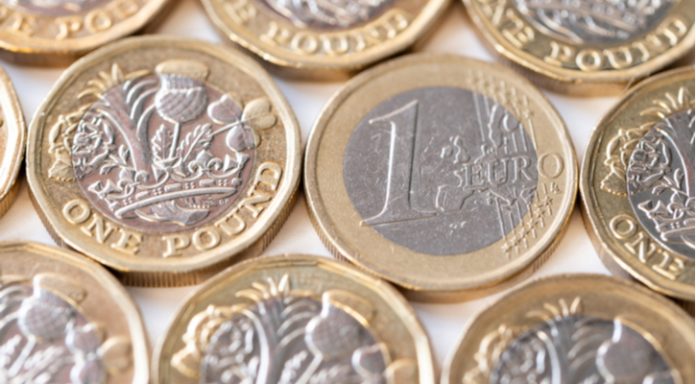- Pound (GBP) supported by risk on mood despite discouraging Brexit developments
- Boris Johnson is in isolation but no displaying signs of covid
- Euro (EUR) slipped on Friday after Q3 GDP was downgraded
- ECB commentary could keep pressure on Euro
The Pound Euro (GBP/EUR) exchange rate is edging higher at the start of the new week extending gains from the previous session. The pair rallied 0.6% across the previous week, settling on Friday at €1.1141, in the middle of the weekly traded range. At 05:15 UTC, GBP/EUR trades +0.1% at €1.1155.
Brexit talks will be the central focus for the Pound as Brexit talks kick off again. Both British and Irish ministers said that there must be a breakthrough in trade negotiations this week. Failure to do so could see around $1 trillion worth of goods at risk of tariffs and tougher rules after the end of the transition period on 31st December.
This would be a fresh economic shock to the UK as it tries to deal with the economic fallout from covid.
At the end of last week Dominic Cummings, UK Prime Minister Boris Johnson’s most powerful advisor stopped working for Downing Street. Given Dominic Cumming’s fierce Leave stance, there are suggestions that Boris Johnson could find he has more political space to compromise and secure a trade deal.
Adding to the spur mood towards the Pound, Prime Minister Boris Johnson has gone back into isolation after coming into contact with someone with covid. He does not have any symptoms.
A downward revision to the Eurozone Q3 GDP reading helped to shore up the Pound Euro exchange rate on Friday. The second estimate was lowered marginally to 12.6%, down from 12.7%, adding further doubts over the outlook of the Eurozone economy. Fears are growing tht the region could well enter a double dip recession by the end of this year as growth momentum fades even before the second lockdown in France & Germany started.
Commentary from European Policy Makers will be in focus and could keep pressure on the common currency as the central bank continues to hint towards additional easing in December.





